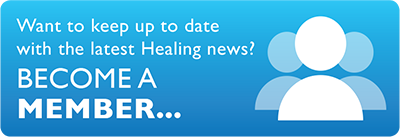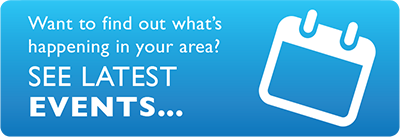New study shows 99% Doctors have recommended CAM for children
• 76% of doctors have also recommended homeopathic medicine for a child
• Doctors advocated complementary and alternative medicines (CAM) where they associated a lower risk of side effects compared to conventional medications
• Doctors involved in the study reported a higher usage of CAM than conventional drugs
A new international study1 of 582 paediatric physicians published today has found almost all have prescribed or recommended a complementary and alternative medicine2 (CAM) for a child in the last year. 99% of the doctors involved in the study – Usage and attitudes towards homeopathy and natural remedies in general paediatrics: a cross-country overview – had recommended a natural remedy and 76% a homeopathic medicine. Study lead Professor André-Michael Beer, head physician of the Department of Natural Medicine in Blankenstein Hospital, Germany, comments: “Evidence suggests an increased use of natural medicine prescribing in children, but this study shows us, for the first time, the almost universal acceptance of complementary medicine and the factors influencing doctors’ decision making.”
“Evidence suggests an increased use of natural medicine prescribing in children, but this study shows us, for the first time, the almost universal acceptance of complementary medicine and the factors influencing doctors’ decision making.”
Side effects, when compared to conventional medications, were a key driver for doctors’ decision making; 70% associated homeopathic preparations with a lower risk of side effects and 60% for natural medicines. Dr María Pilar Riveros-Huckstadt, a paediatrician at the Centro de Salud La Cala in Mijas Costa, Spain, adds: “In paediatrics, it is good for doctors to have other options such as homeopathy and natural remedies to recommend for mild ailments such as infant colic and teething that avoid the potential side effects of conventional treatments. These natural remedies are effective and can positively impact the quality of life for young children and their families.”
For which illnesses is CAM recommended?
The study showed that in homeopathy a key indication is teething: 37% of doctors stated a frequent use. 53% of doctors frequently advocated natural remedies for upper respiratory tract infections, 45% for infant colic and 33% for sleep disturbances.
Higher usage of CAM than conventional drugs
The study, published today in peer-reviewed journal Global Paediatric Health, confirms an increased global interest3-15 in alternative remedies for children. In fact, this study highlights a higher usage of CAM than for conventional drugs. CAM – comprised of vitamins, minerals and supplements (VMS), phytotherapy (extracts of natural origin) and homeopathy in this study – accounted for 57% of doctors’ recommendations compared to 43% for conventional drugs in the same time period.
The impact of personal experience of CAMs on prescribing
Doctors’ personal use of CAM was an indicator of their willingness to prescribe or recommend these treatments in paediatric patients (53% had personally used natural remedies, 66% dietary supplements and 43% homeopathic preparations in the 24 months prior to the study). Silvia Salatino, International Professional Services Manager at the Deutsche Homöopathie-Union (DHU), comments: “It is interesting to note that the doctors in the study who use CAM themselves are more likely to recommend it for their patients. They know from personal experience that these medicines help. Often sceptics of homeopathic and natural remedies are those who have never tried these medicines themselves.”
Parental values influence physician recommendation
81% of paediatric doctors and general practitioners who took part in the study said they feel comfortable discussing CAM with parents and parent values highly influenced doctors. Dr Riveros-Huckstadt explains: “Physicians should feel comfortable discussing the variety of approaches – conventional and natural – so parents can make informed choices to suit the individual needs of the child.”
- 52% of doctors involved in the study reported recommending CAM for children of parents who prefer natural or homeopathic remedies themselves
- Across all countries, significantly more physicians recommended CAM where parents expressed concerns over conventional drugs. Parents worried about side effects (51%) and efficacy of conventional drugs (39%) influenced doctors’ recommendations
- Interestingly one in five doctors (21%) would recommend a natural or homeopathic remedy if the parents had a higher education level
Recognition of the benefits of homeopathy
Four out of five agreed they consider all potential therapies, not just conventional medicine, for childhood illnesses, with 95% of doctors in the study agreeing with the principles of complementary medicine – integrating CAM and conventional drugs. Recognition of the benefits and usage of homeopathy was positive:
- Over three-quarters of the doctors in the study had recommended a homeopathic medicine for a child
- More than half (51%) agreed homeopathy can enhance recovery and symptom relief
- The study found that recommendation of homeopathic remedies is driven by doctors’ belief that they are associated with a lower risk of side effects (70%)
References
1. Beer, Burlaka, Buskin et al. Usage and attitudes towards homeopathy and natural remedies in general paediatrics: a cross-country overview. Global Pediatric Health. 2016: 1-8
2. Complementary and alternative medicine, often referred to as ‘CAM’, is a term used to describe two different concepts. Complementary medicine is defined as a non-mainstream practice used together with conventional medicine, while alternative medicine is defined as a non-mainstream practice used in place of conventional medicine. CAM includes natural products (such as probiotics, herbs, vitamins/minerals or homeopathic treatments) and also mind and body practices (such as acupuncture, massage and meditation). Information sourced from the U.S. Centre for Complementary and Integrative Health. Last accessed May 2015: https://nccih.nih.gov/health/integrative-health
3. Adams D, Dagenais S, Clifford T, et al. Complementary and alternative medicine use by pediatric specialty outpatients. Pediatrics. 2013;131:225-232.
4. Barnes PM, Bloom B, Nahin RL. Complementary and alternative medicine use among adults and children: United States, 2007. Natl Health Stat Report. 2008;(12):1-23.
5. Cuzzolin L, Zaffani S, Murgia V, et al. Patterns and perceptions of complementary/alternative medicine among paediatricians and patients’ mothers: a review of the literature. Eur J Paediatr. 2003;162:820-827.
6. Italia S, Wolfenstetter SB, Teuner CM. Patterns of complementary and alternative medicine (CAM) use in children: a systematic review. Eur J Paediatr. 2014;173:1413-1428.
7. Längler A, Zuzak TJ. Complementary and alternative medicine in paediatrics in daily practice—a European perspective. Complement Ther Med. 2013;21:26-33.
8. Vlieger AM, van Vliet M, Jong MC. Attitudes towardss complementary and alternative medicine: a national survey among paediatricians in the Netherlands. Eur J Paediatr. 2011;170:619-624.
9. Weissenstein A, Straeter A, Villalon G, Luchter E, Bittmann S. High frequency of CAM use among children in Germany. J Altern Complement Med. 2012;18:729-730.
10. Zuzak TJ, Boňková J, Careddu D, et al. Use of complementary and alternative medicine by children in Europe: published data and expert perspectives. Complement Ther Med. 2013;21(suppl 1):34-47.
11. Ekins-Daukes S, Helms PJ, Taylor MW, Simpson CR, McLay JS. Paediatric homoeopathy in general practice: where, when and why? Br J Clin Pharmacol. 2004;59:743-749.
12. Simpson N, Roman K. Complementary medicine use in children: extent and reasons. A population-based study. Br J Gen Pract. 2001;51:914-916.
13. Spigelblatt L. Homeopathy in the paediatric population. Paediatr Child Health. 2005;10:173-177.
14. Van Wassenhoven M, Goossens M, Anelli M, et al. Pediatric homeopathy: a prospective observational survey based on parent proxy-reports of their children’s health-related Quality of Life in six European countries and Brazil. Homeopathy. 2014;103:257-263.
15. Woolf AD. Herbal remedies and children: do they work? Are they harmful? Pediatrics. 2003;113:1517
Source: http://www.businesswire.com/news/home/20160703005011/en/Study-Reveals-99-Doctors-Recommended-Natural-Remedies







